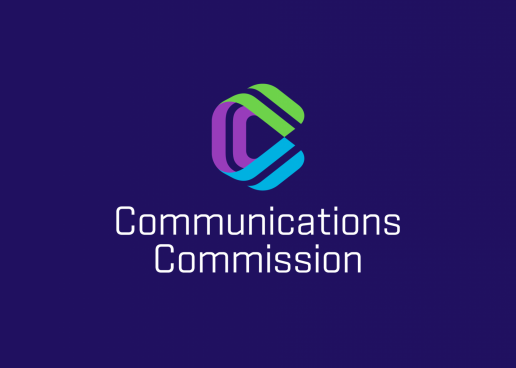According to the Communications Commission, Political Bias and Fake News pose a Challenge for Broadcasters

The Communications Commission has published the third media monitoring report for the 2021 Georgian municipal elections, covering the period between October 3-October 30, when the second round of voting was held. Qualitative monitoring of the following national broadcasters was carried out during the reporting period: Georgian Public Broadcaster, Adjara TV of the Georgian Public Broadcaster, Imedi TV, Rustavi 2, Mtavari TV and TV Pirveli. Monitoring was carried out daily, during the prime-time period between 19:00 and 00:00. In case of political shows, monitoring was carried out throughout the day. Quantitative monitoring applied to approximately 50 broadcasters. The six generalist broadcasters that were subject to qualitative monitoring were assessed by the following broadcasting standards: balance, accuracy, relevance, omission of important information, hate speech, disinformation, discrimination, and manipulation of visual/audio materials.
Pre-election monitoring demonstrated that as a result of the existing liberal legislation, the media in Georgia is diverse and pluralistic, albeit highly polarized. The examples of Imedi TV, TV Pirveli and Mtavari TV show clear bias towards specific political parties. News programs and political shows lack balance and violate journalistic standards. TV Pirveli and Mtavari TV aired serious accusations that were not backed up by evidence. Program presenters openly sided with electoral subjects, called on viewers to vote for them. Insults and hate speech were used on numerous occasions.
The Georgian Public Broadcaster and Adjara TV of the Georgian Public Broadcaster covered the news in an unbiased manner and in line with the standards of ethical journalism. Their programs and reports served to inform the electorate. Rustavi 2 also conducted unbiased coverage of the ongoing events but accorded more airtime to covering the activities of Georgian Dream than of the other electoral subjects.
More specifically, the results of media monitoring of the 6 national broadcasters are as follows:
The Georgian Public Broadcaster covered domestic and international events during the second-round election period in a largely balanced and neutral manner. All subjects involved in the political process were accorded airtime, and all important information was broadcasted. There were no instances of hate speech, misinformation or unverified information being aired.
Adjara TV covered the election campaign in accordance with the appropriate legislative norms and journalistic standards – in an unbiased, non-discriminatory, and calm manner. Presenters and reporters maintained an objective approach towards all political parties and electoral candidates. There was no display of political sympathy, and no discriminatory vocabulary was used. Political shows were conducted in a balanced and calm manner, without emotions or irony.
Imedi TV displayed clear bias and positive attitude towards the governing party and its candidates, while the United National Movement received sharply negative coverage. The activities of Georgian Dream candidates received significant amount of airtime, while the opposition parties were usually presented in a negative context. Political shows mainly featured Georgian Dream representatives. There were instances of the owner of the channel appearing as a guest on the show and openly displaying a negative attitude towards the United National Movement. Presenters did not shy away from displaying irony towards certain electoral subjects. There were instances of guests on the show using hate speech, in response to which the presenters appealed for restraint on some occasions, but not on others.
The news program “Courier” of Rustavi 2 presented verified, fact-based information on a daily basis, without attempting to misinform or manipulate the audience. Although viewers were given the opportunity to hear the positions of different electoral subjects on various political issues, maintaining a balance between the parties remained a challenge for the channel. The quantitative balance was in favor of the governing party, whose representatives were usually accorded the opening and closing statements. Presenters of the political shows were impartial and posed critical questions towards government and opposition representatives alike. However, there was a case of a guest on the show making an insulting remark without being appropriately challenged by the journalist.
TV Pirveli’s bias towards specific opposition parties became even clearer during the second round of voting. The broadcaster offered viewers largely unsubstantiated ‘exclusives’ with reference to “secret/confidential sources.” In reality, these ‘exclusives’ were based on the suspicions and presumptions of the journalists. During the second round of voting, prime time news programs accorded exclusively negative coverage to the activities and high-level visits of government representatives, while some visits were not covered at all. One-sided and unbalanced coverage, as well as expression of biased opinions and open support for opposition candidates remain an issue associated with TV Pirveli. The reporting period showed that the broadcaster’s programs were biased and lacked balance.
Mtavari TV was sharply biased towards the opposition coalition. The United National Movement candidate for Mayor was accorded particularly extensive amount of airtime. During the reporting period, the broadcaster’s news reporters and presenters openly displayed negative attitudes towards the government and the ruling party. Much of the airtime was dedicated to the criticism of Georgian Dream. Similarly, presenters of political talk shows almost invariably agreed with respondents who usually represented the opposition. The perception was that the conversation was conducted not by a presenter and a respondent, but by like-minded individuals. Presenters openly sympathized with the opposition and Mikheil Saakashvili. They frequently used insults and hate speech. The channel often broadcasted one-sided and unbalanced reports and unsubstantiated accusations.
The Communications Commission conducts pre-election media monitoring in accordance with international standards. Its monitors were trained by the media expert of the Council of Europe and Executive Director of the media monitoring organization Memo 98, Rasto Kuzel.










